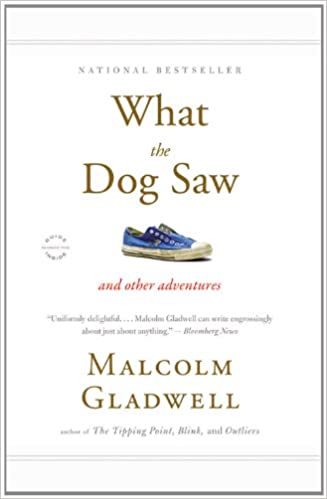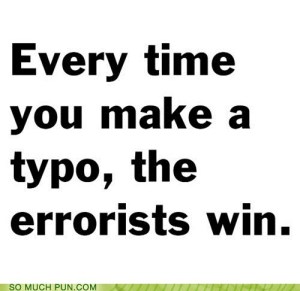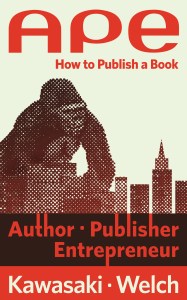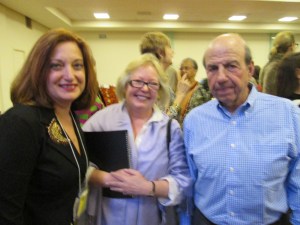The Ambiguous Loss of (Probably) Not Selling My Novel

Danielle Lazarin on Life and Art in the Liminal Spaces Between Grief and Hope
By Danielle Lazarin, September 2, 2021
For years, I’ve posted a dog photo on social media for every writing rejection I get. I post my nos because they are regular, ordinary; it’s the yeses that are flukes and outliers. I want to be transparent about the ratios for the yeses, particularly for earlier-stage writers who might believe once you reach some point in a career it’s a Slip N’ Slide of yes, of opportunity. I want them to see that we all work the same grooves, hoping it will end differently just because it might. As for the dogs, they’re the only things that can reliably turn a mood for me.
Yet, in the sixteen months since my novel went out on submission to publishers in early March 2020, I haven’t posted a single dog for it. Not because there haven’t been any rejections, but because then I would have to explain that I’m trying to sell my novel. When your book is on submission, there’s a pressure of silence till you know the end, a secret you keep, assuming there will be a time when you can recount the story of how it all worked out. You imagine that sheepish and giddy post, never the one saying it never happened; most people, it appears, let that sort of secret dissolve into the ether.
*
I tell the secret to my friends, of course. In January of 2021, I’m walking the woods near my apartment while on the phone with Brian, one of my oldest friends, an artist. When he asks about the novel sale I say, as I often do, that nothing is happening, that nine months in, I’m reaching a point of despair. He tries to cheer me up by naming books with long histories of rejections, noting that many ended up being the masterpieces of our times. I don’t love a lot of the books he mentions, but what I truly hate is the larger narrative about art and rejection.
It’s toxic, I tell him. It seems a distinctly American story to believe it’s a mark of greatness to be rejected, that a narrative of struggle makes the art itself more worthy. When a book has endured a gauntlet like this, a coda has been added, a footnote about its almost non-existence that can carry more weight than the text itself. Perhaps the very reason we hold up these long-rejected books is not for the stories they tell in their pages but because we’re drawn to a redemptive narrative, because that narrative makes sense of what doesn’t have transparent logic: why some art makes it to public consumption and some doesn’t.
I ask Brian to consider the books we don’t know because they never were. Who’s to say they weren’t masterpieces? If my book doesn’t sell, doesn’t this narrative reinforce that it wasn’t good enough, after all? I don’t like this measure of worth.
I want to pause here to say for the purposes of this essay, I need you to imagine my novel is a perfectly good book: well-written, timely, ambitious. Good enough for my agent to put on submission during 2020. I need you to take my word that there is nothing consistent or fixable in the passes I’ve received. That it just hasn’t sold yet. This is the part where most people get uncomfortable.
I think of all the stories we don’t know about what wasn’t, what was wholly imagined but not, in the eyes of others, realized.
I think of all the stories we don’t know about what wasn’t, what was wholly imagined but not, in the eyes of others, realized.
The people in my life further from publishing urge patience. They find it hardest to take in that publishing is not a meritocracy. “Someone will buy it,” they keep saying, refusing to believe that when I say it might not sell, it’s not self-deprecation but realism. These people—the ones who have loved me the longest, usually—believe I can just wait for the good ending, the plot twist they want to believe is coming because it would make a better story, one they want to believe in for my sake. I know it’s out of kindness, but it makes me feel invisible.
*
Some writing friends express their well-meaning disbelief that I—not a debut author, “well-positioned,” in the words of many in-industry people, to sell a book—am enduring so much rejection for so long. I recognize this as projected fear; I understand why they don’t want to imagine themselves in my place when it’s their turn to sell their books, that they want to deny it’s happening, even if it is solely with incredulity via text message.
Anna, a writer friend, says it sounds like what’s bothering me is this lack of public acknowledgement. I tell her about therapist Pauline Boss’s work on ambiguous loss, the fraught space of what no longer exists but isn’t concretely gone, how we don’t know how to mark or mourn it, cannot wrap our brains around grief in this scenario because we don’t know it’s grief. I think of my friend Priscilla, whose pandemic puppy escaped from her side yard, went missing for weeks, and how she didn’t know when she could say it was over, if she should at all. How do you declare the end without a body? The dog resurfaced after six weeks with only a few broken nails. I’d assumed the dog was dead, but never said that to Priscilla; she was still carrying, rightly so, the hope for the other outcome. How can you say such a thing to someone when the possibility still exists for life?
Multiple friends, when I describe this feeling of unacceptable grief for what lives fully and silently in a liminal space say it’s similar to fertility struggles or pregnancy loss, the private carriage of what doesn’t work out but nearly did. I think of all the stories we don’t know about what wasn’t, what was wholly imagined but not, in the eyes of others, realized.
I wanted to write this essay before the book’s fate was sealed, from the mucky and often-silent middle we like to skip over in favor of how it ends, as if we are only our results and not the waiting for them, which is its own complicated story, the one we live in longer than the moment of knowing if we should celebrate or mourn. A small part of me doesn’t want the bio line on this essay to say this novel is forthcoming. Of course I still want the book to be published. But even if I get this ending myself, I also need you to bear witness to the time where I had neither the grit nor optimism that might become part of the narrative when someone else—or myself, even—tells the story of my redemptive ending.
*
In March 2021, I go to a residency in Massachusetts. I see my friend Rachel, another writer. She posits that the pandemic has either been a fast forward or a pause for most of us. She is in fast forward: an interstate move, a baby, now 8 months old, whose face I am seeing for the first time but who I cannot touch. The previous spring, when we’d talked by phone, each of us describing the sky from our respective New York City roofs, the farthest outside either of us were venturing then, I said being pregnant that year must feel like a waiting inside a waiting, an unknown inside an unknown.
I wonder if I can ever escape this cycle, if the shame of having hope will undermine the very thing—making my work—that is supposed to carry me forward.
I wonder if I can ever escape this cycle, if the shame of having hope will undermine the very thing—making my work—that is supposed to carry me forward.
I reject pregnancy metaphors for writing. The act is not gestation, which is mostly passive, nor is it labor, often less under control than we prefer it and, in the scheme of things, rather speedy. In truth writing a book is more like raising a child, who you hope one day you can stop paying bills for but who will return to visit, happy in the world, engaged with it in their own way. Distinct from you but still of you. You’ll think you’ve done good work, proud of your eventual healthy separation.
In March, I’m still waiting, but here is Rachel’s baby, outside of her body, undeniably real. He has the sweetest face. A happy face, and how that moves me, the beauty of him not comprehending what it’s taken to get him, any child, here, to a moment they can look across the table at someone meeting them for the first time and smile, make gurgling noises, try to communicate with them. Rachel, when I share the early draft of this essay, sees it razor-sharp, how I’m pulled between mourning the loss of the readers who could imagine my novel alongside me, and like those who wish me well, carrying the hope for a different ending. In Rachel’s scale of pandemic life, I am on pause.
*
Some days, I get close to asking my agent to pull the book from submission, but there’s no good reason to beyond wanting, as everyone else does, to just get to the end already. Though I’ve had my share of self-doubt in the past, I’ve always managed to find the smallest shred of faith and let it carry me through; now I think, with the most seriousness I have mustered in over two decades of writing, about giving up all together, which feels more reasonable than writing more books no one else will read.
I try to work on a new novel, but can’t get my grip on it. I work on short stories, thinking a different mode might return me to firmer ground. One, mockingly, overlaps with characters from the unsold novel. When I work on it, I get a sickening feeling, like I do when I have a big, toothy idea, that I could write an entire novel from this new vantage point. Maybe, I consider, I’d done it wrong, that this was better, the “real” version of that book.
I, too, am desperate for a redemption narrative, to have this time pay out in some way. I start to imagine all my vindicated endings. But what would make them good enough to obliterate how bad it feels to doubt the larger project of my own work this much, the shame I feel for having hope? If I get lots of money for my next book? If an editor who said no says yes next? Literary prizes publicly declaring me a genius? I wonder if I can ever escape this cycle, if the shame of having hope will undermine the very thing—making my work—that is supposed to carry me forward to a chance at another kind of ending.
*
Home from my residency, I decide to finally count my passes and come up with 22. I describe this process to my therapist as “swallowing swords,” an act of bravery and insanity that I feel palpable relief at having completed. The next day, I’m in the Metropolitan Museum of Art, trying to find the exit, but keep taking wrong turns. I look up from the map on my phone to find myself before a display case of swords. Alone in the room of arms and armor, I laugh out loud, take a photo.
Writers are supposed to carry on without external validation, build a thick skin to cover up our fragile egos. But I wonder, doesn’t it hurt underneath the armor itself, to simply carry that layer of protection that still isn’t immunity? Doesn’t armor allow, every now and again, the tip of the sword in? Even a published work is full of wounds we are encouraged to hide, and as I understand it, armor is quite hard to move around in.
*
During these months of my waiting inside the waiting, there are two places I feel good. The first is when I do manage to get back inside my work. Because the inside of work is unformed, it’s full of possibility, free from the ugliness of reality and its disappointments. The end result is a result: an answer to what it is, who likes it, what all that effort and time is worth on a market you cannot shape. Which can obliterate what it was like to make the work, which can feel, on good days, like rightness, like you are drawing a thing out into its proper light, and that it matters greatly to do so. What I need you to see, too, is that if I don’t get the redemptive ending, I won’t talk about the decade I spent from novel conception to completion as non-existent, or worse, failed, just because no one bought it. I don’t want to be erased by the bad ending, either.
The other place is in the woods, which I’ve walked nearly daily since the pandemic began. What I haven’t said about the woods is that my novel, the one that hasn’t sold yet, is set there. As I understood the rhythms and pockets of the woods more, I took mental notes for edits I might never make. It was too painful to write them down, but my brain won’t stop imagining the possibility of one day using what I now know.
Of all the essays I weighed writing about this time, I struggled most with this one, about the way art tries to live despite what we all know—that its survival odds are small. How art doesn’t care about endings, but we do, and how I will forever be suspended in that space of feeling like I am waiting, stupidly, perhaps, full of hope, which is the space of anyone who makes art. I struggle with how you might read that sentence as redemption, as reason.
With time, I’ve grown attached to the woods as just woods. I can walk them without seeing my novel in every pathway. Sometimes I do feel its ghosts—the characters you might never get to know as I have—walking with me the way my friends did, listening and sympathizing as I apologized for talking about all this book stuff, still, for saying there is nothing to say and then going on about it, though they’d asked. Though it is still happening, and not happening. Though none of us knows the ending, or will be able to make proper sense of it when it finally comes.

This essay is reprinted from Literary Hub (accessed September 28, 2021). Permission requested. To read the original publication with any updates or changes, and the comments (some of them insightful and worth reading), visit https://lithub.com/the-ambiguous-loss-of-probably-not-selling-my-novel/.




 Two years ago I was happy to reconnect with a former public relations agency client who sought me out to promote his glossy new hardcover book on the evolution of retail store design. Against my better judgment and to my ultimate regret, I accepted the assignment.
Two years ago I was happy to reconnect with a former public relations agency client who sought me out to promote his glossy new hardcover book on the evolution of retail store design. Against my better judgment and to my ultimate regret, I accepted the assignment.


 thing.)
thing.)